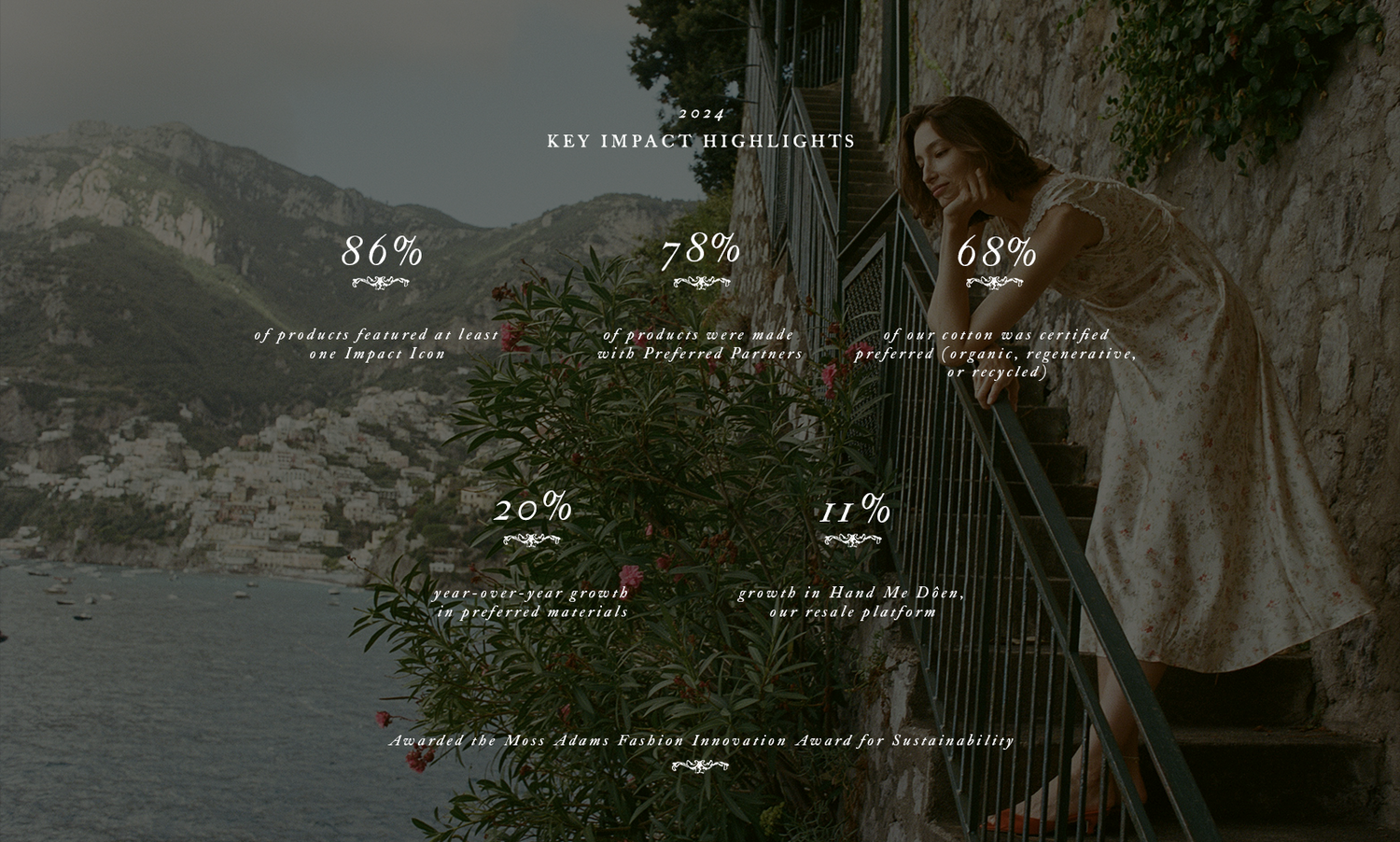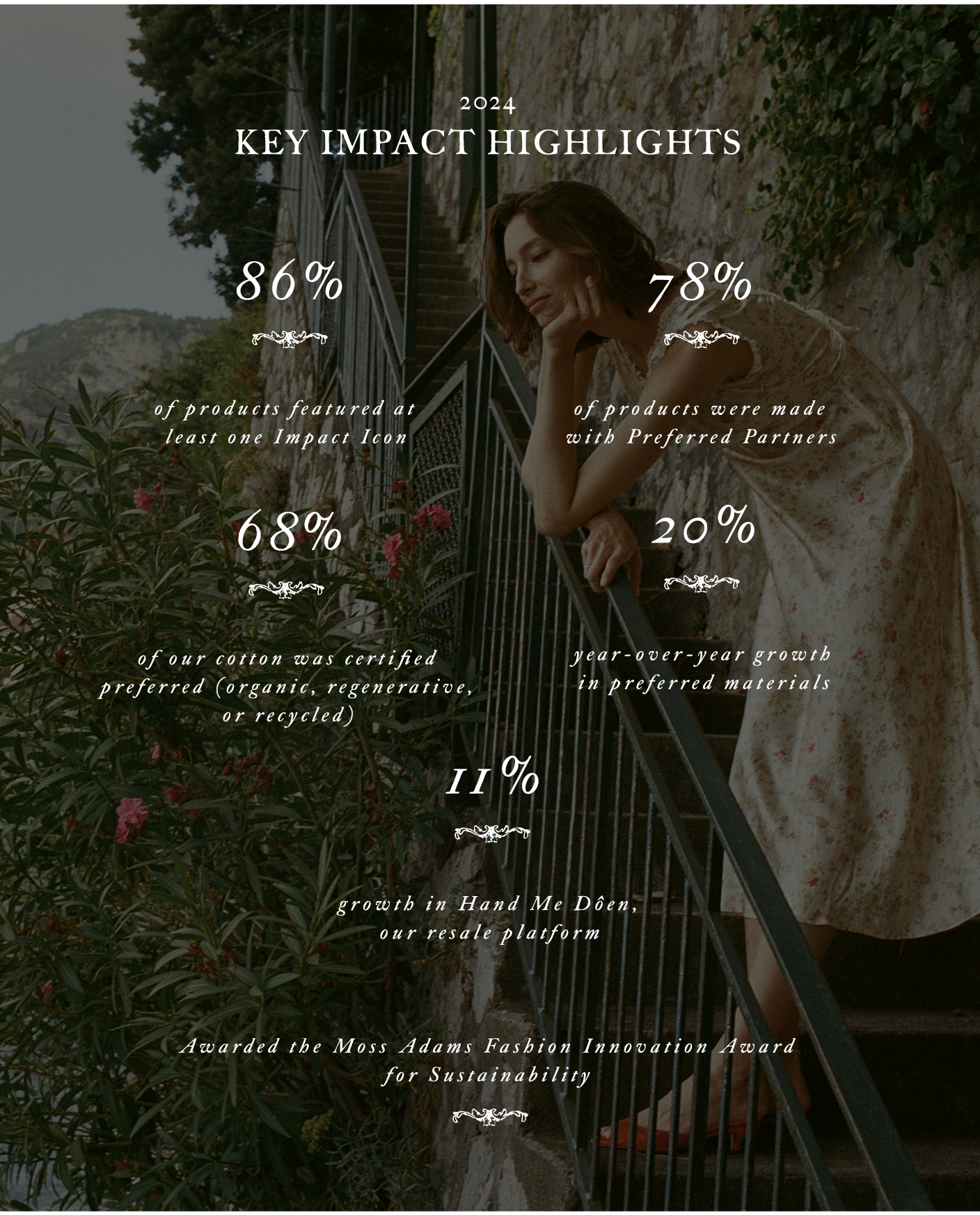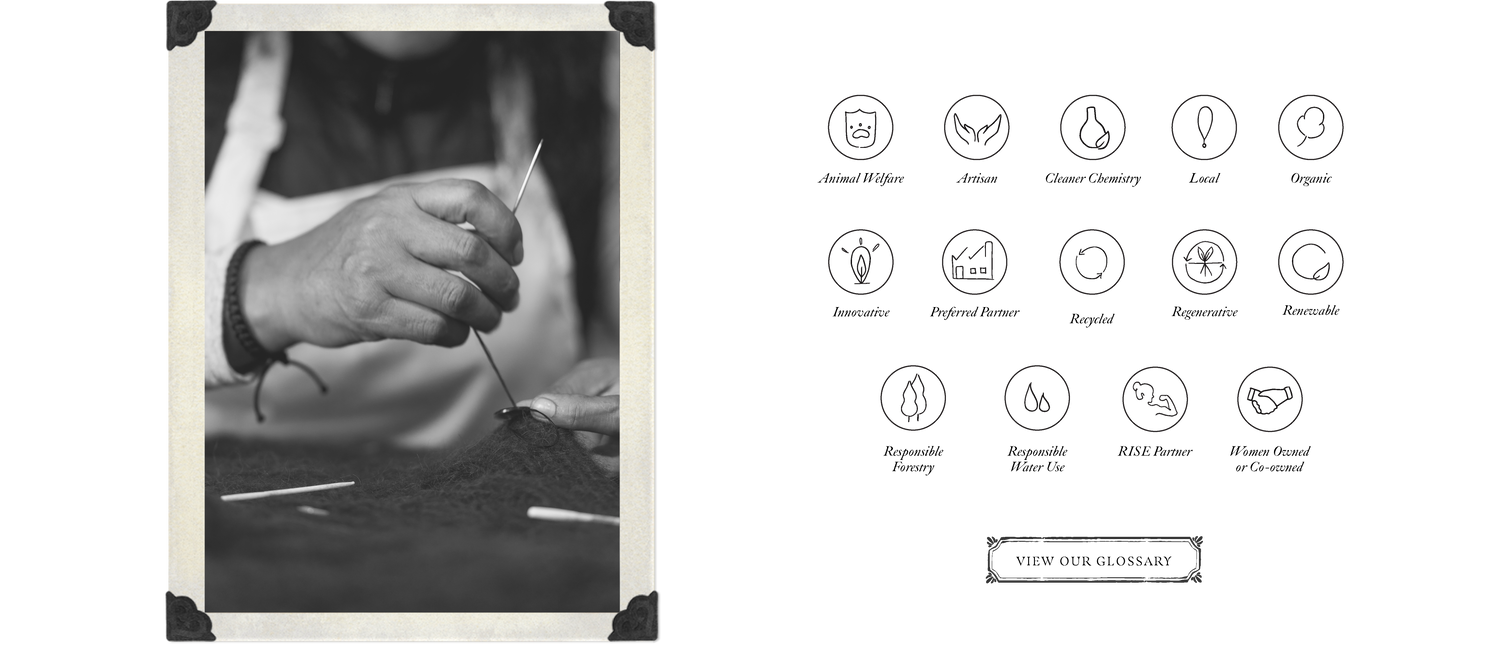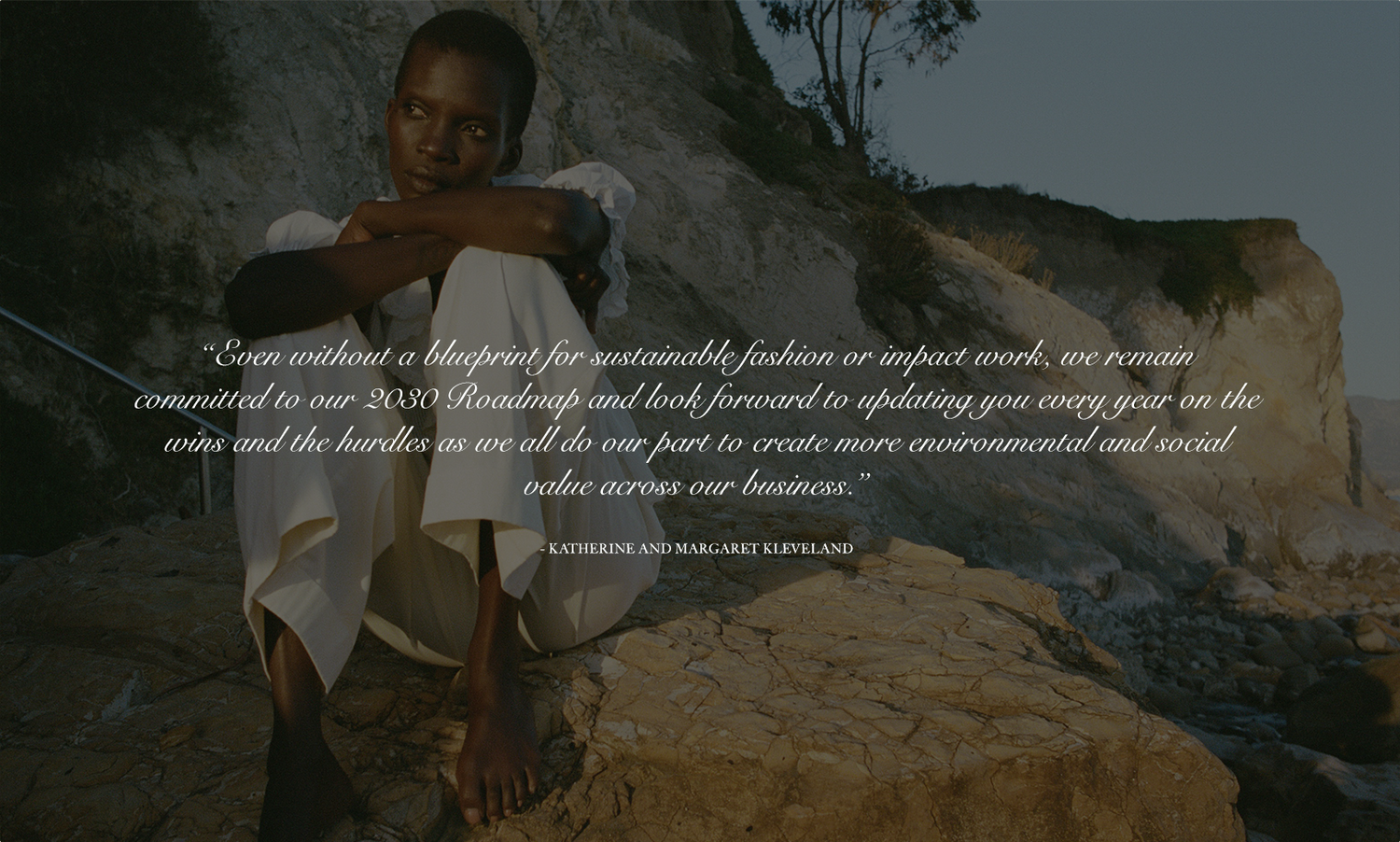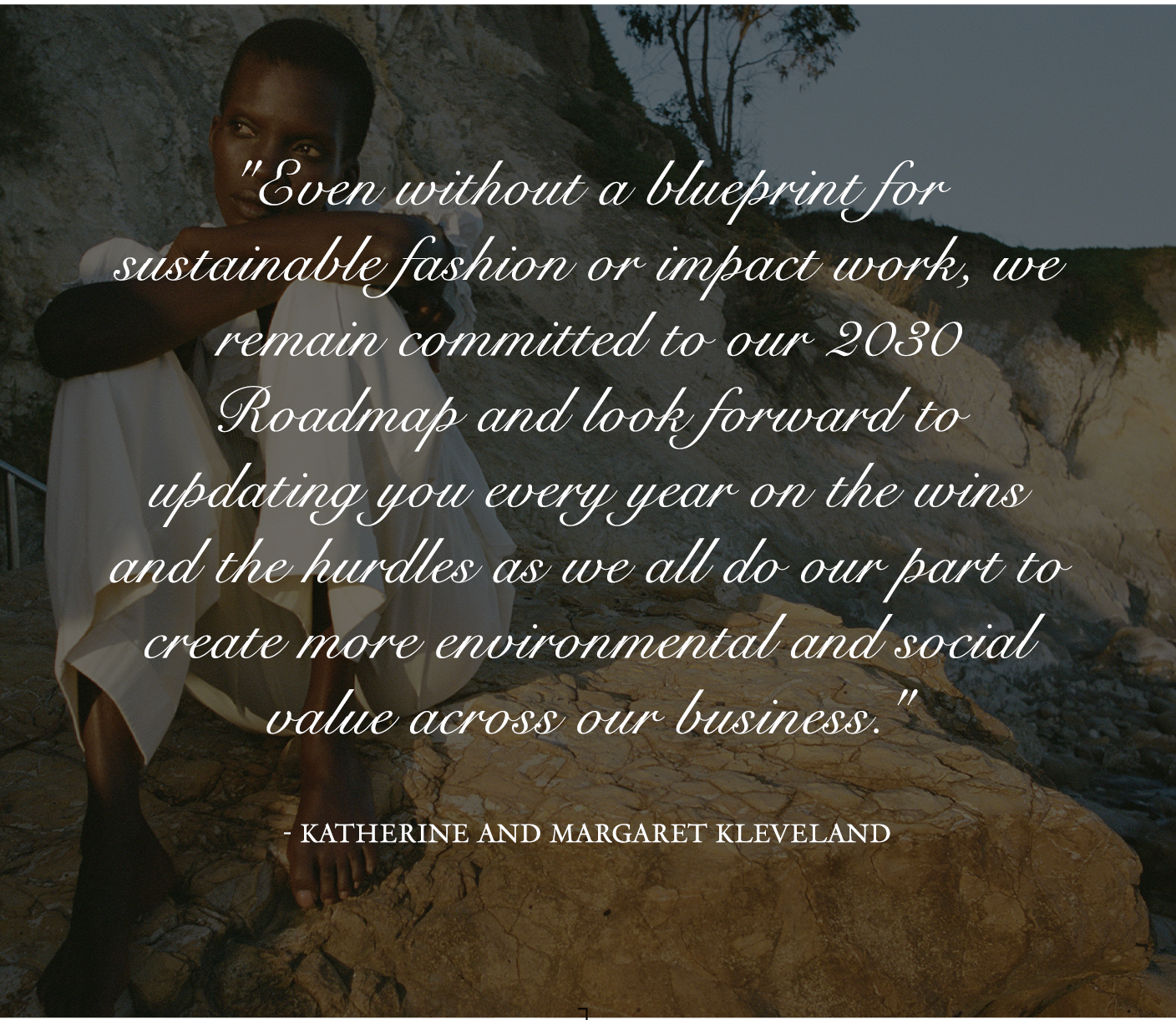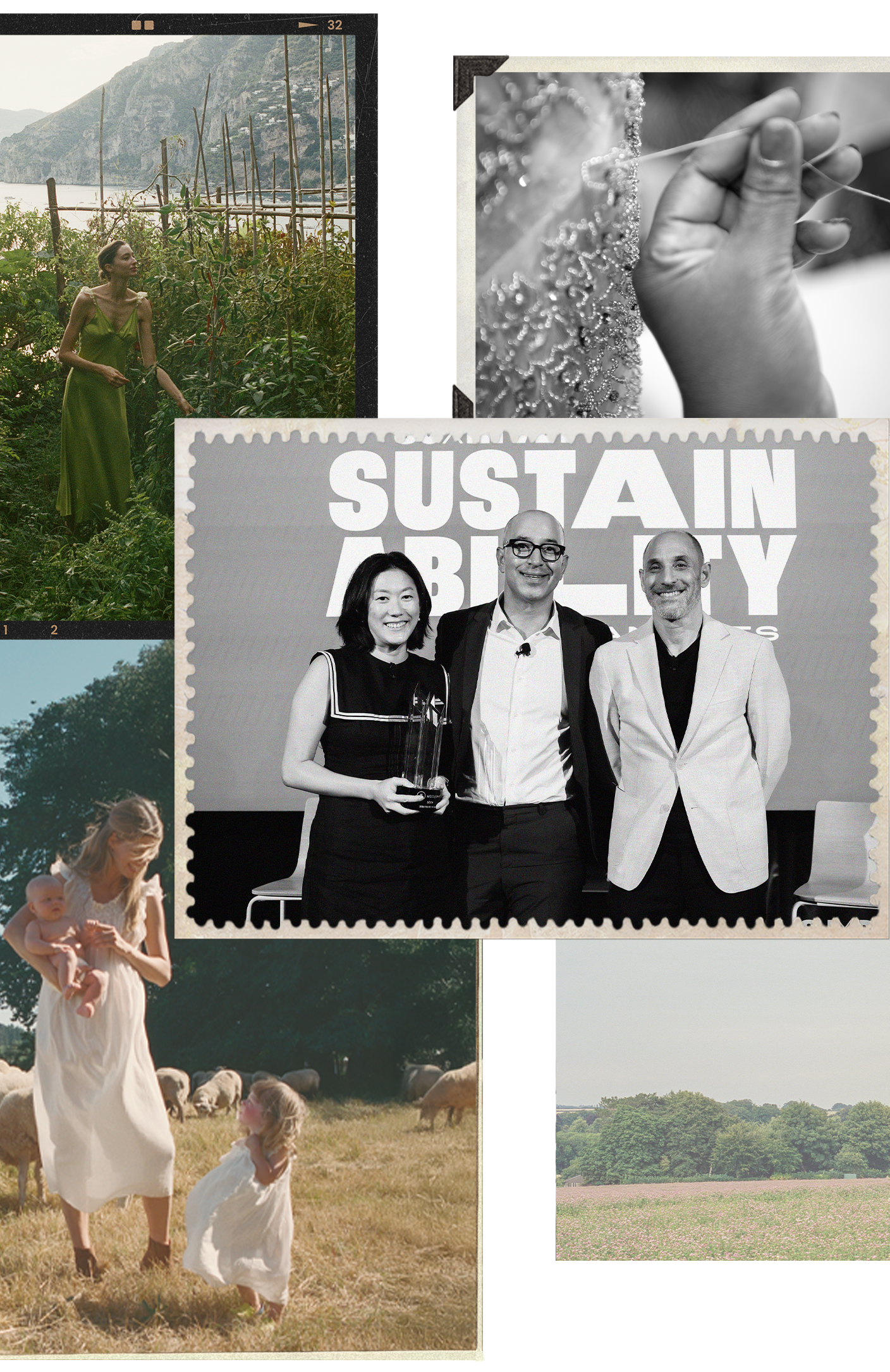2024 Impact Update
INTRODUCTION
At DÔEN, we believe that building a responsible, values-driven brand means continuously showing up with intention, curiosity, and a commitment to doing better. In 2024, that mindset guided us as we progressed our 2030 Roadmap goals across our four Impact pillars:

Our Four Pillars
TRACEABILITY
Commitment to traceability across our value chain
ENVIRONMENTAL
Environmental strategy rooted in fighting climate change
SOCIAL
Social strategy focused on responsibility and female empowerment
COMMUNITY
Community advocacy through thoughtful partnerships
We continued to build on these strong foundations and embarked on new initiatives and partnerships to drive industry-wide progress. We strengthened our traceability efforts, expanded our responsible sourcing strategy, and made significant strides in our carbon reduction efforts and sourcing of lower-impact materials. As part of our commitment to industry collaboration, we joined the Global Reporting Initiative (GRI) Working Group to help shape sustainability reporting standards for the fashion industry and partnered with leading brands on a life cycle assessment (LCA) study to improve data accuracy on silk fiber production.
We were awarded the Moss Adams Fashion Innovation Award for Sustainability, providing us with a wonderful moment to pause and celebrate our achievements, while filling us with a sense of renewal and dedication to this important work. We’re grounded in the challenges and shifting nature of impact work, but feeling inspired and grateful to be on this journey with you, our community.
Advancing Traceability
In 2024, we strengthened our traceability efforts to better understand our value chain, from organic cotton farms to the artisans crafting our pieces. We maintained 100% Tier 1 traceability, grew our Tier 2 visibility to 70%, and continued refining our Tier 3 and Tier 4 mapping. To support this progress, we launched traceability management training for new factory partners, ensuring alignment with our responsible sourcing goals. Transparency remains a priority, and our Impact Icons—highlighting preferred materials and responsible manufacturing—grew by 22% to cover 86% of our collection, keeping us on track for 100% by 2030. Additionally, we joined the Global Reporting Initiative (GRI) Working Group to help shape sustainability reporting standards for the fashion industry, driving greater transparency across the industry.
Our Social Strategy
We focused on standardizing our responsible sourcing practices across all factory partners to support our growing supply chain and expanding product assortment. In 2024, the majority of our collection (78%) was made with Preferred Partners—partners that go above and beyond in their social and environmental initiatives, such as carbon reduction efforts and advanced worker protection or enhancement programs. We also maintained our commitment to empowering women throughout our value chain by prioritizing women-owned or co-owned manufacturers and our continued brand partnership with RISE (Reimagining Industry to Support Equality)—which aims to embed gender equality in business practice and catalyze systems change in global supply chains.
Our Environmental Strategy
We are committed to reducing our environmental impact through carbon reduction, preferred material sourcing, and industry collaboration. In 2024, we achieved our Science-Based Targets initiative (SBTi) aligned Scope 1 and Scope 3 emission goals and refined our Scope 2 reduction strategy to keep us on target.
We achieved a 20% year-over-year growth in the use of preferred materials, marking a significant step toward our 2030 goal of sourcing 100% of our primary materials from recycled, regenerative, or responsibly renewable sources. In 2024, we saw significant growth in responsible forestry fibers and recycled fibers—and introduced new preferred fibers, like traceable regenerative cotton. As a first-time participant in the Textile Exchange Material Benchmark, we gained deeper insights into our material portfolio, identified opportunities for improvement, and measured our progress against industry peers.
We also collaborated on a first of its kind silk life cycle assessment (LCA) with our friends at Reformation, Eileen Fisher, Everlane, and Zimmerman to gain a more accurate understanding of the silk supply chain—from mulberry tree farms to the final yarn. The study will be published in partnership with Textile Exchange in 2025 with the goal of driving the adoption of lower impact silk fiber production methods.
Now in its third year, Hand Me Dôen (HMD) continues to thrive as a space where our community can embrace circular fashion by passing down their pre-loved DÔEN pieces. In 2024, sales on HMD grew by 11%, reinforcing the value of thoughtful resale.
Our Community Advocacy
Our community advocacy is rooted in philanthropic causes near and dear to our heart—in our hometown of Los Angeles and beyond. In 2024, we deepened those commitments with partners both old and new, including Homeboy Threads, Planned Parenthood LA, Kindred Space LA, and Room to Read. We were thrilled to launch (and quickly sell out!) a limited-edition nightgown collaboration between DÔEN & Library Science, with 20% of the profits going to Room to Read. The partnership was a natural fit given Library Science’s singular mission to get young people reading and Room to Read's commitment to promoting literacy and gender equality through education.

Looking Ahead
We are proud of the progress we’ve made in 2024, but recognize that there is always more work to do. Our efforts in traceability, responsible partnerships, preferred materials, carbon reduction, and circularity are steps toward a more transparent and responsible fashion industry. Looking ahead, we remain dedicated to our mission: to create beautiful, lasting collections while supporting women in all aspects of our organization, supply chain, and community. Thank you for being part of this journey!


